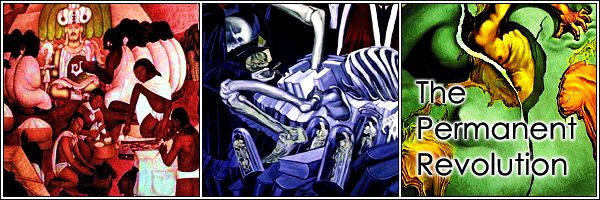Book Review: Francois Mitterrand
I've been reading lots of books this summer. The blog is looking arid. 2 n 2...
First up is "Francois Mitterrand: The Last French President" by Ronald Tiersky. In it Tiersky covers the life, achievements and personality of France's deceased Socialist president. The book is not exactly a traditional biography, for one it's non-linear, describing events in his life by theme rather than chronologically.
Tiersky describes Mitterrand's major efforts to "make History" in three broad themes. The first is the attempt at "socialism" from 1981 to 1983, the massive budget deficits, the trade deficits and coming financial collapse. In switching to fiscal discipline, in the name of "Europe" because it allowed France to stay in the European Monetary System, Mitterrand's failed attempt in fact spelled the death of "socialism". Many other leftist parties in Europe would learn from Mitterrand's experiment to not go too crazy upon taking over the state.
The second was "Europe". "Europe! Europe! Europe!" The common market, the Euro, the Maastricht Treaty ("ever closer union") and all that shazzle. Europe was Mitterrand's greatest divergence de Gaulle's strict nation-statism and was his answer to the end of the Cold War and German unification.
The third was, rather inelegantly titled by Tiersky, "legitimacy and institutions". It's an important theme though, that with Mitterrand, the left fully reconciled itself to the Fifth republic. Mitterrand accomplished this by embracing the symbols of the fifth republic, building monuments as a socialist president, interring left-wing heroes, not screwing the cohabitation too much etc.
The accomplishments are real, as are the failures (notably France's notoriously high unemployment, which began under Mitterrand), but the parts I found most interesting were those which dealt with Mitterrand's personality and private life. Stories, like how a smitten 22-year old Mitterrand, later a notorious womanizer, became engaged to a 15 year old, and then was sent to war. He was captured by the Germans, escaped after 18 months only to find his belle had found someone else, leaving him truly heartbroken (he doesn't seemed to have loved anyone else in the same way, for fear of vulnerability?). Or how Mitterrand, once de Gaulle and the right asssumed power in 1958, spent twenty-three years in opposition before coming to power in 1981. If that isn't a mark of dedication...
Also of interest is Mitterrand' outlook on life. Tiersky labels him an existentialist, an agnostic and skeptic, but who willed meaning and life from the consciousness we are given. Mitterrand was shy, timid, (though he made it come across as haughty or mysterious) he had to make a conscious effort to overcome it. That was freedom to Mitterrand, something that had more to do with overcoming oneself than anything outside us. He believed most people incapable of that kind of freedom, he wrote about being held prisoner in 1940 with his fellow French soldiers:
First up is "Francois Mitterrand: The Last French President" by Ronald Tiersky. In it Tiersky covers the life, achievements and personality of France's deceased Socialist president. The book is not exactly a traditional biography, for one it's non-linear, describing events in his life by theme rather than chronologically.
Tiersky describes Mitterrand's major efforts to "make History" in three broad themes. The first is the attempt at "socialism" from 1981 to 1983, the massive budget deficits, the trade deficits and coming financial collapse. In switching to fiscal discipline, in the name of "Europe" because it allowed France to stay in the European Monetary System, Mitterrand's failed attempt in fact spelled the death of "socialism". Many other leftist parties in Europe would learn from Mitterrand's experiment to not go too crazy upon taking over the state.
The second was "Europe". "Europe! Europe! Europe!" The common market, the Euro, the Maastricht Treaty ("ever closer union") and all that shazzle. Europe was Mitterrand's greatest divergence de Gaulle's strict nation-statism and was his answer to the end of the Cold War and German unification.
The third was, rather inelegantly titled by Tiersky, "legitimacy and institutions". It's an important theme though, that with Mitterrand, the left fully reconciled itself to the Fifth republic. Mitterrand accomplished this by embracing the symbols of the fifth republic, building monuments as a socialist president, interring left-wing heroes, not screwing the cohabitation too much etc.
The accomplishments are real, as are the failures (notably France's notoriously high unemployment, which began under Mitterrand), but the parts I found most interesting were those which dealt with Mitterrand's personality and private life. Stories, like how a smitten 22-year old Mitterrand, later a notorious womanizer, became engaged to a 15 year old, and then was sent to war. He was captured by the Germans, escaped after 18 months only to find his belle had found someone else, leaving him truly heartbroken (he doesn't seemed to have loved anyone else in the same way, for fear of vulnerability?). Or how Mitterrand, once de Gaulle and the right asssumed power in 1958, spent twenty-three years in opposition before coming to power in 1981. If that isn't a mark of dedication...
Also of interest is Mitterrand' outlook on life. Tiersky labels him an existentialist, an agnostic and skeptic, but who willed meaning and life from the consciousness we are given. Mitterrand was shy, timid, (though he made it come across as haughty or mysterious) he had to make a conscious effort to overcome it. That was freedom to Mitterrand, something that had more to do with overcoming oneself than anything outside us. He believed most people incapable of that kind of freedom, he wrote about being held prisoner in 1940 with his fellow French soldiers:
I was really astonished at the ease with which men accustom themselves to the life of a herd of sheep. And these were the same men who, nourished by ideas of liberty and progress had vaunted so much and so proudly their nature as individuals...But I observed yet one more time that the play rarely touches its actors, that people are much like straw when faced with unhappiness or happiness; the greatest happiness gives man migraine; the greatest unhappiness gets to him only through the small things that are lacking in a meal, or bread which gets tale.Tiersky generally writes positively about Mitterrand, but he doesn't leave out the innumerable scandals and moral failures: his "three wives and two families", the Rainbow Warrior incident (led to the death of one photographer), lying about his cancer, changing France's electoral system to the benefit of the Front National, his defense of ex-Vichy officials who had sent Jews in France to Nazi death camps. Tiersky leaves everything needed for a judgment of this "Last French President". The last one live "the French exception" of an unreconstructed and idealist Left, of an uber-powerful presidency at home, of French power in Africa, of a France standing as a nuclear third pole between the superpowers. Mitterrand said, presidents after him "will only be accountants"... Chirac, and this isn't a criticism, was less than interesting. Lets see how Sarko fairs.



1 Comments:
I can start to understand where your fascination for Mitterand comes from.
Interesting stuff, particularly about the man's personnal life.
Post a Comment
<< Home